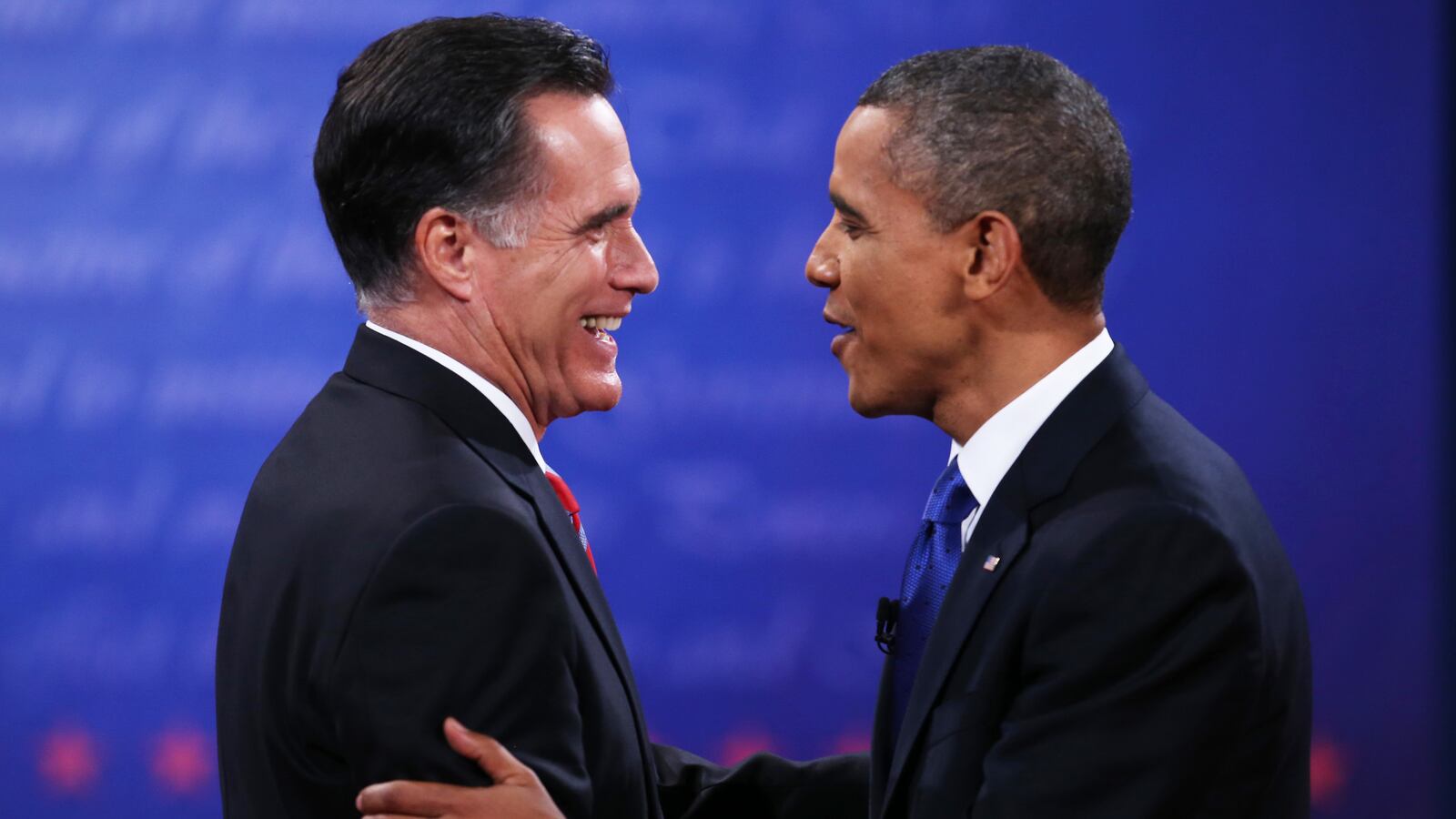Mitt Romney may have one more brief moment in the sun.

Having disappeared without a trace after losing the election—except for some clumsy leaked comments that made him sound bitter—the Republican nominee will visit the White House on Thursday, though not in the way he had hoped.
President Obama is having his defeated rival over for lunch.
It’s a gracious move that makes the president appear bipartisan just as he is calling on the Republicans to compromise on his tax plan to avert the fiscal cliff, a central issue in the campaign. But it also presents Romney with a stark choice.
He can attend the private lunch, slip into a waiting car, and say nothing to the media stakeout on the White House driveway, retreating into the cone of silence that has enveloped him since the night of Nov. 6. Or he can step up to the microphones, sketch out his vision of working with the administration, maybe do a television interview or two.
It’s not that Romney needs to do this to salvage his political career; that part of his life is over. It’s that he needs to recast how he is remembered as a 2012 candidate.

So far, Romney has been defined by many in his own party, and not in a flattering way. Prominent Republicans such as Bobby Jindal have assailed his comments to donors on a conference call that Obama won by handing “gifts” to such favored constituencies as women, Hispanics, gays, and young people. The remarks were about as smart as writing off 47 percent of Americans as freeloaders, which Romney did in those infamous taped remarks to another group of fat cats.
Other Republicans are trashing him as an awful candidate and trying to develop what the president called Romnesia about his entire effort.
This is unfair, of course—had Romney, running against an incumbent, managed to win a few more swing states, he’d be visiting Obama as a future occupant and his party would be hailing him as a savior. But politics is not kind to losers.
One adviser is speaking out on his behalf. Stuart Stevens, who attracted his own slings and arrows as the campaign’s chief strategist, defended his former boss in a Washington Post op-ed:
“I appreciate that Mitt Romney was never a favorite of D.C.’s green-room crowd or, frankly, of many politicians … Romney captured the imagination of millions of Americans. He spoke for those who felt disconnected from the Obama vision of America. He handled the unequaled pressures of a campaign with a natural grace and good humor that contrasted sharply with the angry bitterness of his critics.”
If the former governor indeed inspired many voters in a losing cause, he now has the opportunity to build on that. It’s not likely that Obama is going to offer him a Cabinet post in a Lincolnesque “team of rivals” move, but he might ask Romney about heading a commission or taking on some project.
Or Romney could just go make more money and ride in his car elevator.
If he chose to team up with the administration, some in the party would deem him a sellout. Didn’t he spend two years running against Obama? Remember how much grief Jon Huntsman took from the GOP faithful for serving as O’s ambassador to China?
But I suspect the real Romney is more the moderate fellow we saw in the debates than the severe conservative who campaigned in the primaries—the kind of guy who doesn’t think cooperation is a dirty word.
If ex-presidents can have a fruitful public-service career, why not ex-presidential candidates who happen to be out of a job?






